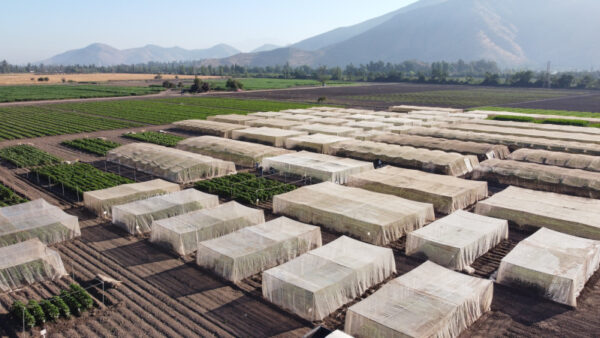Two of the seed industry’s biggest names come together to talk about their vision for the future of our regulatory system, what they want to change, and how they can work together.
We recently say down with two very important people in the seed industry — Canadian Seed Growers’ Association (CSGA) Executive Director Doug Miller and Seeds Canada Executive Director Barry Senft. We talked about a huge issue they both find themselves at the forefront of — Seed Regulatory Modernization (SRM).
A conversation a long time in the making, we discussed their visions for the future and areas of common ground between the two organizations. The discussion is presented here in an edited form for length.
Do we need regulation to ensure seed quality?

Barry Senft: The simple answer to that is yes, of course we do. When organizations ask for the regulations to be reviewed, people might suggest, “companies just want the system deregulated.” From a Seeds Canada perspective, that isn’t the case at all. We want regulations there as a guardrail and to allow innovation to occur. Having been chief commissioner at the Canadian Grain Commission, I know the importance of having common sense regulations in place for the industry.
Doug Miller: That’s an interesting question, but I’m not sure it’s the right question. Let me put it to you this way. Do we need regulation to ensure car quality? Technically, no. A company isn’t going to try to put out a bad car; it’s bad for business. But quality doesn’t mean the same thing to all people and seed quality is no different. A regulatory framework provides buyers with trust and confidence in what they’re buying, and trust is really key here. At CSGA, our vision for the future is one based on trust; that Canadian producers have trust and confidence in the seed that they’re planting.
We need a modern seed system that adapts quickly to change, creates a level playing field for all stakeholders, is able to deliver new technology, and is transparent and science based. Seed regulation isn’t just about quality; it’s about trust in that quality.
What are some key areas of the seeds regulations that need modernizing and why?
Doug Miller: As Canada’s national seed crop certification authority, CSGA has an intimate knowledge and appreciation for the Seeds Regulations. We know where improvements and modernizations can be made. As we were developing our vision for the future and our key SRM policy positions, it was important to unpack how the current system operates, look at the irritants, the pain points and the bottlenecks. Only once you’re able to identify the processes and irritants, are you actually able to create a value proposition that will resonate with the seed sector and the value chain. The issues we identified were due to inconsistencies and confusions in the system, ranging from incomplete datasets, record keeping issues, overly complex reporting requirements and systems, and even a lack of clear authorities. When we look towards the future, it’s crucial we establish a clear designated authority. A strong national seed crop certification system, supported by a single window framework where CSGA is acting as the national designated authority on behalf of the Canadian government for all things related to seed certification, is the path forward.
Barry Senft: SRM is not just about fixing what is broken or outdated; it’s about the modernization of the system and how we can improve the system taking into consideration how significantly our industry has changed and is going to continue to change. An example of that is the technology that is accessible to seed development and supporting infrastructure. The Canadian Food Inspection Agency (CFIA) has given us this opportunity to do that with the SRM review. We should take this seriously.
Seed Summit 2022 provided some common themes: timely access for farmer customers, innovation, attracting investment, and doing it through a nimble, adaptive regulatory environment. What is the role of government versus that of private industry? One significant issue raised through the Seed Summit process is that the full grain value chain wants to be involved in seed development in some fashion. One idea being discussed by Seeds Canada to address that is a single and independent industry-led committee, enabled by government to be responsible for a number of issues that are now overseen or delivered by only one or two stakeholders in the seed development process. This idea will be further discussed at Seeds Canada’s 2022 annual meeting.
CSGA is working to position itself as an authority on seed certification in Canada and abroad, and Seeds Canada wants to position itself as a go-to seed industry resource for a variety of services. How can these two goals complement one another?

Doug Miller: There are a lot of complementary aspects here, and there’s an opportunity for each organization to really play to its strengths. Seeds Canada has been around in the form of its legacy organizations for many years. It has many interests, ranging from IP, phytos, biotech, audits, pest control, product regulations, the list goes on. For CSGA, while we have positions on some of these issues and our members have their views as well, it’s just not the focus of our organization. CSGA is focused solely on seed crop certification, seed certification standards development, and representing our over 3,100 members.
Some people may see conflict here, but these are actually two complementary, interconnected organizations with a path forward. CSGA is proud of our track record as a reliable regulatory partner. Where we think we can have the biggest positive impact is on providing that digital single window that we’ve heard about for the last number of years. We’re really excited about being able to provide that solution for the industry and CSGA becoming the main point of contact for industry and government when it comes to seed certification.
Barry Senft: We are not looking to do everything that needs to be done in the seed development area. In fact, it’s the opposite. We want more than one entity providing services for the industry. Regarding the “go-to” term, Seeds Canada will be providing services for our members on such things as communicating issues on behalf of our members and clients, communications to our members and clients, government advocacy, both provincially and federally, development of new services that benefit our members and clients and representing our members on the international scene. Regarding how Seeds Canada and CSGA function in this environment, the organizations will have differences of opinion. I don’t think we need to apologize for that.












